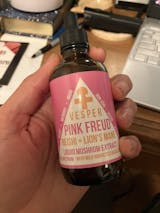In recent years, functional mushrooms have gained significant attention for their potential health benefits. But what does it mean for a mushroom to be functional? This blog post delves into the concept of functional mushrooms, exploring their unique properties, benefits, and the science behind their growing popularity.
What Are Functional Mushrooms?
Functional mushrooms or functional fungi are fungi that offer various benefits beyond basic nutrition. Unlike common culinary mushrooms, functional mushrooms are rich in bioactive compounds that can support overall well-being. Some of the most well-known functional mushrooms include Turkey Tail, Reishi, Chaga, Lion’s Mane, and Cordyceps.
Key Benefits of Functional Mushrooms
-
Immune Support: Many functional mushrooms are known to enhance immune function. For instance, Reishi mushrooms contain beta-glucans, compounds that can boost the immune system's response to pathogens .
-
Cognitive Health: Lion’s Mane mushroom is renowned for its potential to improve cognitive function and memory. This is largely due to its unique compounds, erinacenes and hericenones, which stimulate the production of nerve growth factor (NGF), essential for the maintenance and growth of neurons . Studies suggest that these compounds can help support brain health and may even have neuroprotective effects .
-
Energy and Stamina: Cordyceps is famous for its ability to enhance energy and athletic performance by increasing oxygen utilization and ATP production in the body .
-
Anti-Inflammatory Properties: Chaga mushrooms possess powerful anti-inflammatory properties, which can help reduce inflammation and support overall health .
- Gut Health: The prebiotic content along with krestin in Turkey tail mushrooms have proven beneficial in improving the gut micro-biotic health.
The Queen Mushroom - Reishi


Lion's Mane for the Brain
There have been possible cognitive health benefits observed in studies on lion’s mane. Lion's mane extract has been described as a nootropic meaning it aids in the process of neurogenesis. This means it helps the brain regenerate neurons.
In one animal study, lion’s mane extracts appeared to give mice better object recognition and memory. Other research has shown that lion’s mane extracts may have the potential to treat or prevent diseases that cause a decline in cognitive health, such as Parkinson’s disease and Alzheimer’s disease.
One Japanese study took adults between 50 and 80 years with mild cognitive impairment and found that daily consumption of lion’s mane extracts for 4 months led to higher scores on cognitive function scales when compared to a placebo group.
Turkey Tail to Feel Well
Turkey tail mushroom, also known as Trametes versicolor or Coriolus versicolor, is a type of functional mushroom that has been used for centuries in traditional Chinese medicine to support gut health many other things. Recent scientific research has begun uncovering the many potential benefits of turkey tail mushroom for stomach and gut health, supporting the microbiome, the gut-brain axis and many other crucial factors that play into our gut and digestive health.
Some of the key active compounds in the turkey tail mushroom is a group of polysaccharides called PSK and PSP. These compounds have been shown to have immunomodulatory properties, meaning they can help the body regulate the immune system and support the body's natural defenses. In particular, PSK has been found to have anti-inflammatory and antioxidant effects, helping the body fight oxidation in the cell. This may help to protect the gut and stomach from inflammation and damage.
In addition to its immune-supporting properties, turkey tail mushrooms may also have beneficial effects on gut health. This is likely due in part to its prebiotic content. Studies have shown that it can help to increase the number of beneficial bacteria in the gut, which can improve the overall health and balance of the gut microbiome. This can have a positive impact on digestion and nutrient absorption, as well as helping to prevent the growth of harmful bacteria. Additionally, turkey tail mushrooms have been found to promote the production of short-chain fatty acids(SCFAs) which are beneficial for gut health, specifically butyrate which is known to have anti-inflammatory effects, improve gut barrier function and promote healthy gut microbiota.
Another potential benefit of turkey tail mushroom for stomach and gut health is its ability to help protect against ulcers. Ulcers are sores that develop on the lining of the stomach or small intestine and can be very painful and debilitating. Some research has found that turkey tail mushroom may help to reduce the risk of ulcers by reducing inflammation and promoting the healing of damaged tissue. Furthermore, turkey tail mushroom has been found to have a protective effect on the mucous lining of the stomach and gut, this is particularly important as the mucous layer acts as a barrier against harmful pathogens and irritants, thus promoting a healthy gut.
Turkey tail mushrooms are highly beneficial medicinal mushroom with many potential health benefits, particularly for stomach and gut health. It can help to boost the immune system, improve gut health, reduce the risk of ulcers and cancer. Turkey tail mushroom has been found to be safe and well-tolerated in most studies, however, it is always recommended to consult with a healthcare professional before incorporating any new supplement into your diet. The following bibliography is a list of studies that have been conducted on the health benefits of turkey tail mushroom.
The Northern regions of the globe can be harsh, inhospitable to life. Winters are long and cold; snow may leave all but the trees hidden beneath it's frozen mass. Summers serve as an opportunity to prepare for the looming freeze which is just around the corner immediately after the first thaw. For a few months resources are abundant. Salmon migrate inland to spawn, berries are abundant, and mushrooms fruit. Then winter is back, introducing a period of want and vulnerability.
Walking through a forest of birch trees (which are often composed of just a single organism), one may not give a glance toward the often large black growths protruding from the trunks like festering wounds. Smaller chaga specimens may appear to be old cuts, as they fill in as a similar rough black substance. Yet to the trained eye, the prized medicinal fungus is easy to recognize. Beneath the rough black outer shell is a squishy, golden-orange core.
Chaga mushrooms are the most powerful source of antioxidants in the world - up to 7 times as potent as acai, a popular antioxidant supplement. The impact of this powerful source of antioxidants is impressive. For centuries, chaga (Inonotus obliquus) has been known as an immune booster in Siberia and other regions of Northern Europe. It has been used as a treatment for inflammation, diabetes, heart disease and cancer.
Inflammation is a response from the immune system that is meant to fight disease. In the short term, inflammation is an effective way to do this. In the long-term, inflammation can be harmful and lead to heart disease, arthritis and other chronic inflammatory conditions. Studies suggest chaga extract can positively impact the immune system by reducing long-term inflammation and fighting harmful bacteria and viruses.
Our immune system is regulated by cytokines which are specialized proteins that are used by the body to modulate immune response. Some cytokines are beneficial to our immune response while some are potentially harmful. Chaga helps produce beneficial cytokines and stimulates white blood cells which are critical in fighting disease. With these two harmonious functions, chaga mushrooms can play a major role in helping the body fight disease. Studies have also shown that chaga can prevent the production of harmful cytokines. These proteins cause inflammation and their prevalence in excess can cause inflammation to become harmful and potentially become chronic.
The Science Behind Functional Mushrooms
The health benefits of functional mushrooms are primarily attributed to their rich content of polysaccharides, terpenoids, phenolic compounds, and other bioactive molecules. These compounds interact with the body’s systems in various ways:
- Polysaccharides, particularly beta-glucans, modulate the immune system, enhancing its ability to fight off infections and diseases.
- Terpenoids have anti-inflammatory and antioxidant properties, protecting the body from oxidative stress and inflammation.
- Phenolic compounds contribute to the antioxidant activity, helping to neutralize harmful free radicals.
Incorporating Functional Mushrooms into Your Diet
One of the most convenient and effective ways to incorporate functional mushrooms into your daily routine is through liquid extracts. Liquid mushroom extracts are concentrated forms of the mushrooms' bioactive compounds, making it easy to obtain their health benefits.
- Ease of Use: Liquid extracts can be added to any beverage, such as water, tea, or coffee, allowing for easy and versatile consumption.
- Higher Bioavailability: The extraction process often enhances the bioavailability of the beneficial compounds, meaning your body can absorb and utilize them more effectively.
- Consistency: Liquid extracts provide a consistent dosage of the active ingredients, ensuring you receive the same amount of health benefits with each use.
- Taste: Many liquid extracts are formulated to minimize the strong taste of mushrooms, making them more palatable and easier to incorporate into your diet.
Simply add a few drops of the liquid extract to your drink of choice, and you can enjoy the myriad benefits of functional mushrooms with minimal effort.
Conclusion
Functional mushrooms are more than just a trend—they offer a natural and effective way to support health and wellness. By understanding what makes a mushroom functional and exploring the diverse benefits they offer, you can make informed decisions about incorporating these powerful fungi into your lifestyle.
Embrace the world of functional mushrooms and discover how these extraordinary fungi can contribute to your health and well-being.
Further Reading:
References
- Source on immune support from Reishi mushrooms: Healthline.
- Source on cognitive health benefits from Lion’s Mane: NCBI.
- Source on erinacenes and hericenones in Lion’s Mane: PubMed.
- Source on energy and stamina from Cordyceps: PubMed.
- Source on anti-inflammatory properties of Chaga: ScienceDirect.




















